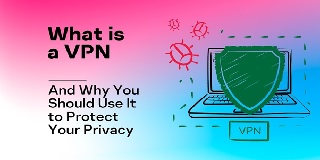The world is shrinking into your palms these days and gone are the days you had to physically meet people and discuss confidential matters. It’s all online now and internet is your new office/school/college now. Thanks to the pandemic, we’re sure to stay so for the foreseeable future.
Since all your day to day activities are online nowadays, it is time that you know your activities on the internet is monitored and also vulnerable for malicious attacks. This article provides you a basic walkthrough on this subject and advises you on protecting your online activities via VPN.

Who can monitor your online activities
Your Internet Service Provider (ISP) and the public WiFi-s you connect to for using the internet is the primary source of connection establishment between you and the internet. These networks (ISPs and WiFi) are legally allowed to monitor (spy your online activities) the sites you visit, the time you spend in a site or page, browsing history, etc. and sell it to advertising agencies.
Note: This applies even to your activities on private browsing options like Incognito mode. Remember, Incognito mode only allows you to browse without storing your history on the device. Your ISP or Government can still access it if required.
This data is used by companies like Facebook, Google to target you via a personalized ad campaign thereby influencing your online activities.
Also, any hacker on your network (say when you’re using a public free WiFi) to read your activities online and use it to attack your information assets online.
What is a VPN?
A Virtual Private Network (VPN) is an encrypted way to establish a connection between you and the internet by protecting your activities and browsing history to any third parties such as your ISPs or to the WiFi networks you’re connected to.
Why should you use a VPN?
A VPN basically encrypts your connection and hence your data is totally obscured from hackers or any other kind of malicious attacks. Also, using a VPN also hides your IP address thereby totally masking your actual identity and location.
How else can VPN be useful?
Access Content from a different location:
Some contents are either censored or licensed for a particular geography based on the regional norms. Using a VPN allows you to access such content by spoofing your location. Though this sounds like a sketchy behavior, usage of VPNs to access contents are legal in USA and many countries.
Safety protocol for remote working
While all of us are adapting to the remote working culture, it is of vital importance that the security protocols of your office remain uncompromised. Hence, using a VPN adds an extra layer of security to the confidential data you access via public WiFi or home ISP networks.
Smart Savings
Many subscription services and products offer different pricing for different geographies. If you can put in a little effort, using the location spoofing options via VPN, you can subscribe or buy services at a lower cost than the cost at your actual location.
Disclaimers:
- Usage of VPN alone doesn’t guarantee complete privacy unless coupled with TOR browser.
- Know the laws of your country and any country you are visiting before using a VPN


